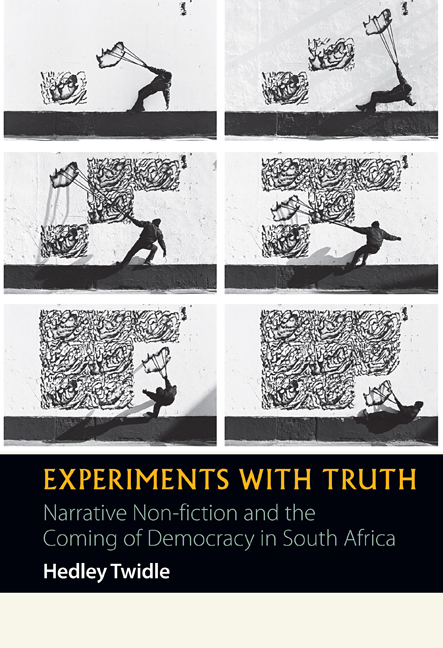Book contents
- Frontmatter
- Contents
- Preface: Encountering non-fiction
- 1 Introduction: Historical and theoretical approaches
- 2 Unusable pasts: The secret history of Demetrios Tsafendas: assassin, madman, messenger
- 3 Literatures of betrayal: Confession, collaboration and collapse in post-TRC narrative
- 4 In search of lost archives: Nostalgia, heterodoxy and the work of memory
- 5 A very strange relationship: Ambition, seduction and scandal in post-apartheid life writing
- 6 Some claim to intimacy: Political biography and the limits of the liberal imagination
- 7 In short, there are problems: Literary journalism in the postcolony
- 8 Unknowable communities: Necessary fictions and broken contracts in the heart of the country
- 9 A new more honest code: Memoirs of the ‘born frees’ and the futures of non-fiction
- 10 Afterword: The extracurriculum
- Bibliography
- Index
- Miscellaneous Endmatter
Preface: Encountering non-fiction
Published online by Cambridge University Press: 11 September 2020
- Frontmatter
- Contents
- Preface: Encountering non-fiction
- 1 Introduction: Historical and theoretical approaches
- 2 Unusable pasts: The secret history of Demetrios Tsafendas: assassin, madman, messenger
- 3 Literatures of betrayal: Confession, collaboration and collapse in post-TRC narrative
- 4 In search of lost archives: Nostalgia, heterodoxy and the work of memory
- 5 A very strange relationship: Ambition, seduction and scandal in post-apartheid life writing
- 6 Some claim to intimacy: Political biography and the limits of the liberal imagination
- 7 In short, there are problems: Literary journalism in the postcolony
- 8 Unknowable communities: Necessary fictions and broken contracts in the heart of the country
- 9 A new more honest code: Memoirs of the ‘born frees’ and the futures of non-fiction
- 10 Afterword: The extracurriculum
- Bibliography
- Index
- Miscellaneous Endmatter
Summary
At the beginning of Fine Lines from the Box, a 2007 collection of essays and journalism, Njabulo Ndebele describes discovering a crate of books in his father’s garage when he was a boy, at some point in the mid-1960s. It is disguised by unused floor tiles and garden tools; on top are old copies of Huisgenoot, Zonk and Drum magazines, then Ludo and Snakes and Ladders game boards. ‘But as I got closer to the bottom of the box, my heart leapt with disbelief ‘:
Here was Down Second Avenue by Ezekiel Mphahlele and Road to Ghana by Alfred Hutchinson; and Blame Me on History by Bloke Modisane; and Naught for Your Comfort by Trevor Huddleston; and Tell Freedom by Peter Abrahams; […] Chocolates for My Wife, by Todd Matshikiza; South Africa: The Struggle for a Birthright by Mary Benson; The Ochre People by Noni Jabavu; Ghana: The Autobiography of Kwame Nkrumah; Let My People Go by Albert Luthuli; Go Well Stay Well by Hannah Stanton, copies of Africa South magazine, and other lesser known books that I do not remember now. Banned books! (9)
Here was, in other words, a secret archive of non-fiction from southern Africa and beyond, one that marked, he writes, ‘a turning point in my life’ (9). Ndebele describes the thrill of devouring the autobiographies of Bloke Modisane and Es’kia Mphahlele as two very different approaches to the same overriding social and political reality: ‘It struck me then that oppressed people were far more complex than the collective suffering that sought to reduce them to a single state of pain’ (10). This was the beginning of ‘a reading and writing journey that has not ended’, a process of seeking to understand his native land, and to represent it in prose with an immediacy and directness that he calls ‘the art of the fine line’: ‘Writing is the one art that compels the writer to explore and express complex feelings and thoughts through an attempt at simplicity and concreteness that are yet able to preserve the complexity’ (10).
Life writing in South Africa often returns to this scene of encounter. If one unpacks that half-hidden crate, similar moments can be found nested (like Russian dolls) within the books Ndebele mentions.
- Type
- Chapter
- Information
- Experiments with TruthNarrative Non-fiction and the Coming of Democracy in South Africa, pp. vii - xivPublisher: Boydell & BrewerPrint publication year: 2019



